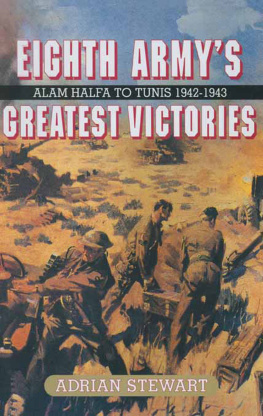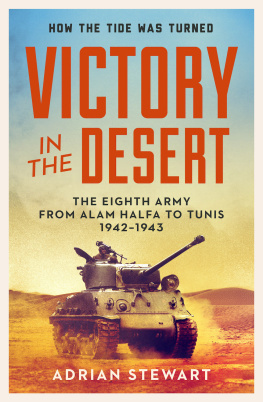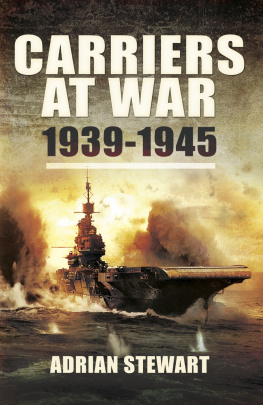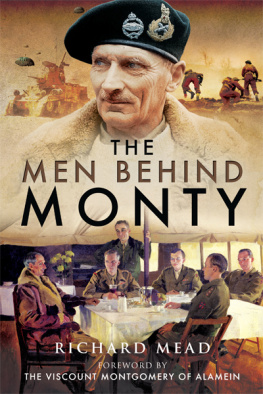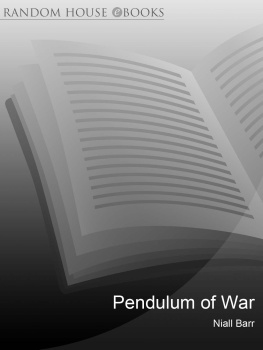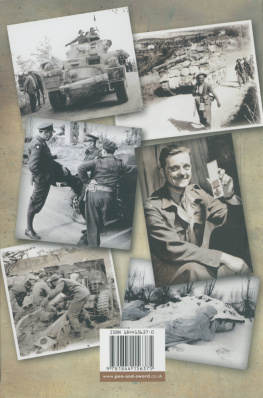Adrian Stewart - Eighth Army’s Greatest Victories
Here you can read online Adrian Stewart - Eighth Army’s Greatest Victories full text of the book (entire story) in english for free. Download pdf and epub, get meaning, cover and reviews about this ebook. publisher: Leo Cooper, genre: History. Description of the work, (preface) as well as reviews are available. Best literature library LitArk.com created for fans of good reading and offers a wide selection of genres:
Romance novel
Science fiction
Adventure
Detective
Science
History
Home and family
Prose
Art
Politics
Computer
Non-fiction
Religion
Business
Children
Humor
Choose a favorite category and find really read worthwhile books. Enjoy immersion in the world of imagination, feel the emotions of the characters or learn something new for yourself, make an fascinating discovery.
- Book:Eighth Army’s Greatest Victories
- Author:
- Publisher:Leo Cooper
- Genre:
- Rating:4 / 5
- Favourites:Add to favourites
- Your mark:
- 80
- 1
- 2
- 3
- 4
- 5
Eighth Army’s Greatest Victories: summary, description and annotation
We offer to read an annotation, description, summary or preface (depends on what the author of the book "Eighth Army’s Greatest Victories" wrote himself). If you haven't found the necessary information about the book — write in the comments, we will try to find it.
Eighth Army’s Greatest Victories — read online for free the complete book (whole text) full work
Below is the text of the book, divided by pages. System saving the place of the last page read, allows you to conveniently read the book "Eighth Army’s Greatest Victories" online for free, without having to search again every time where you left off. Put a bookmark, and you can go to the page where you finished reading at any time.
Font size:
Interval:
Bookmark:
First published in Great Britain in 1999 by
Leo Cooper
an imprint of
Pen & Sword Books Ltd
47 Church Street
Barnsley
South Yorkshire
S70 2AS
Copyright Adrian Stewart, 1999
ISBN 0 85052 6663
Typeset in 10/12.5pt Plantin by
Phoenix Typesetting, Ilkley, West Yorkshire
Printed by
Redwood Books Limited,
Trowbridge, Wiltshire
To the officers and men
of the Eighth Army
who shared their experiences with me.
The author is grateful for having been allowed to quote extracts from the following works:
Operation Victory
Reproduced by kind permission of the estate of the late Major General Sir Francis de Guingand and of Hodder & Stoughton Limited.
Monty: The Making of a General 18871942
Reproduced by kind permission of Nigel Hamilton and of Penguin Books Limited.
A Full Life
Reproduced by kind permission of the estate of the late Lieutenant General Sir Brian Horrocks and of HarperCollins Limited.
The North African Campaign 194043
Reproduced by kind permission of the estate of the late General Sir William Jackson and of B.T. Batsford Limited.
The Life and Death of the Afrika Korps
Reproduced by kind permission of the estate of the late Ronald Lewin and of B.T. Batsford Limited.
The Rommel Papers
Reproduced by kind permission of the estate of the late B.H. Liddell Hart and of HarperCollins Limited.

MAP 1: EIGHTH ARMYS GREATEST VICTORIES: ALAM HALFA TO TUNIS 194243.
The dates after place-names indicate when they were reached by men from Eighth Army
So now to these campaigns to these golden pages
of the history of British arms.
Major General Sir Francis de Guingand,
Chief of Staff, Eighth Army in Operation Victory,
referring to Eighth Armys victories in North Africa.
Introduction
THE FORGOTTEN VICTORIES
By mid-April 1943, the Second World War had raged for over three-and-a-half years and although even the most pessimistic could feel that the tide of Axis conquest had at last begun to ebb, the prospects for the future still appeared bleak in the extreme. The Allied powers had now to liberate the occupied territories, then strike at the heart of the enemy homelands. It was a task which many feared would prove endless.
There was ample excuse for this belief. In North Africa, an Anglo-American army had for four months been striving in vain to break through the Axis defences on the western border of Tunisia. In Russia, the Germans, recovering with remarkable resilience from the disasters of the previous winter, had begun a new offensive. In North-West Europe, France, the Low Countries, Denmark and Norway were still in enemy hands; in South-East Asia, so were Burma and Malaya. In the Pacific, the Americans had captured the strategically vital island of Guadalcanal in February 1943, but this had taken them six months and even then the Japanese had successfully evacuated the remains of their garrison.
There had, however, been one Allied triumph which provided a dramatic contrast to the slow progress made elsewhere an achievement to delight and justify the resolute, to astonish and hearten the gloomy. In less than six months, the British Eighth Army had conquered the enemy-occupied part of Egypt, the whole of Cyrenaica, eastern province of Italys North African colony of Libya, the whole of its western province, Tripolitania, and a good three-quarters of Tunisia. It had also, as would shortly transpire, ensured that the remains of the two Axis armies in North Africa could not be evacuated.
No wonder then that de Guingand refers to these campaigns as golden pages. No wonder that General Sir David Fraser in his history of the British Army in the Second World War, And We Shall Shock Them, declares that Eighth Armys succession of victories, its triumphant march from one end of North Africa to the other had already become renowned and will remain immortal. Yet in practice most later accounts of the fighting in North Africa, let alone those of the Second World War in general, have tended to dismiss Eighth Armys conquests after the great Battle of El Alamein with only the briefest of descriptions.
El Alamein admittedly is normally described in some detail and rightly so but even here justice is rarely done to Eighth Army as a whole. De Guingand for instance reviews the battle by reference to what he calls the stepping stones to victory. All of these are High Command decisions. Vital though these undeniably were, the emphasis placed upon them tends to hide the ultimate reason why victory was achieved. As Brigadier C.E. Lucas Phillips, an artillery officer in Eighth Army at the time, points out in his Alamein: Under the direction of a commander of the first order, it was very much a soldiers battle.
Moreover it has frequently been overlooked that the mutual trust between the commander and his soldiers which, Field Marshal Montgomery tells us in his Memoirs, was to make Alamein possible, had been forged in the earlier battle of Alam Halfa. And Alam Halfa also, as de Guingand sadly remarks, is hardly ever spoken of nowadays and comparatively few knew it took place. It deserves study and a prominent position in our military history.
This is doubly the case because prior to Alam Halfa there had been a long period during which the Allied forces in North Africa had endured continuous disappointments. It was not that they had known only defeat. There had been advances, but these had always seemed to be followed by retreats. There had been successes, but these had never seemed to bring any lasting benefits. Hopes had been raised, but they had been dashed again so often that there were few indeed who had not begun to wonder whether final victory would ever be achieved.
Perhaps because they left such lasting scars, these ordeals have by contrast received much subsequent attention. Nonetheless it seems right to relate them in outline once more, for they provide the sombre background against which the forgotten victories of Eighth Army shine all the more brightly.
Chapter 1
THE DJEBEL STAKES
The war in North Africa had begun as long ago as 10 June 1940, when the Italian dictator Benito Mussolini had declared war on a Britain he believed was doomed, though it was only on 13 September that his troops, under Marshal Rudolfo Graziani, finally invaded Egypt. Four days later they had captured a few white mud-brick buildings, a mosque and a landing ground which the Italian communiqus elevated to the status of the town of Sidi Barrani. Exhausted by this achievement, they then halted, to begin building a chain of forts stretching off to the south-west.
The battleground over which the rival armies were to fight was the Western Desert, extending southward from the Mediterranean, westward from the River Nile, to cover most of Egypt and Libya. Not here the golden sand dunes of romantic imagination. Indeed the sand was really gritty dust, providing a normally shallow carpet over a rock base that frequently emerged to form low ridges. There were also cliffs, or escarpments as they were called, where the land climbed from the coastal plain to the inland plateau. The largest of these, near the Egyptian frontier-town of Sollum, rose to a height of 600 feet.
Nor was the sand golden. Over most of the area it was a tawny brownish-yellow, becoming grey towards the coast where the underlying rock was limestone, though the Mediterranean beaches were a pure, dazzling white. And in the Djebel Akhdar, the 3,000 feet high Green Mountains in the Cyrenaican Bulge between Benghazi and Derna, there were fertile valleys with a reddish soil that reminded many an Englishman of Devonshire.
Next pageFont size:
Interval:
Bookmark:
Similar books «Eighth Army’s Greatest Victories»
Look at similar books to Eighth Army’s Greatest Victories. We have selected literature similar in name and meaning in the hope of providing readers with more options to find new, interesting, not yet read works.
Discussion, reviews of the book Eighth Army’s Greatest Victories and just readers' own opinions. Leave your comments, write what you think about the work, its meaning or the main characters. Specify what exactly you liked and what you didn't like, and why you think so.

